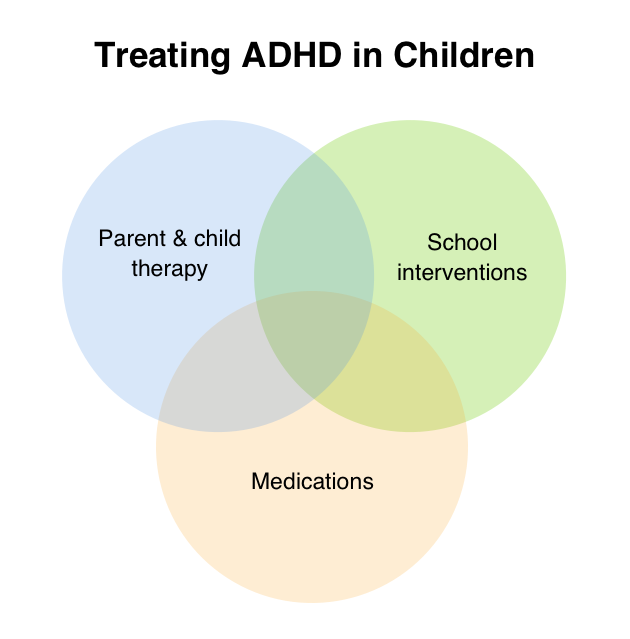Your Overview to Discovering the Right ADHD Treatment for Enduring Results
Navigating the intricacies of ADHD treatment requires a nuanced understanding of both the disorder and the myriad alternatives readily available for efficient management. It is important to acknowledge that what jobs for one person may not always produce the very same outcomes for another. Hence, a tailored approach-- including specialist advice, medication, behavioral approaches, and way of life changes-- becomes paramount. Nonetheless, the trip towards determining one of the most appropriate therapy strategy can be filled with obstacles. What are the vital elements that affect effective end results, and how can people ensure they get on the appropriate path?
Understanding ADHD and Its Effect

In grownups, ADHD can result in difficulties in workplace environments, affecting productivity, time management, and social partnerships. Commonly, undiagnosed or incorrectly took care of ADHD can add to co-occurring mental health and wellness problems, such as anxiousness and clinical depression, more complicating a person's total health.
The social assumption of ADHD can differ, causing stigma and misunderstanding, which might prevent people from seeking aid. As recognition grows, it is necessary to foster an atmosphere that promotes understanding and assistance for those impacted by ADHD, highlighting the demand for precise medical diagnosis and tailored approaches to alleviate its impact on day-to-day life.
Summary of Therapy Choices
A comprehensive approach to dealing with ADHD encompasses a selection of alternatives tailored to the person's one-of-a-kind demands. These alternatives can generally be classified into behavioral treatments, psychoeducation, and way of living modifications, together with pharmacological treatments that may be discovered later on.
Behavioral interventions, such as cognitive-behavioral therapy (CBT), concentrate on changing specific habits and creating coping techniques to take care of symptoms efficiently. Psychoeducation plays an essential function in equipping both people and their family members by providing information regarding ADHD, its difficulties, and reliable techniques for support.
Way of living alterations can considerably affect ADHD monitoring. Normal exercise, a balanced diet, and sufficient sleep add to general health and signs and symptom control. Mindfulness practices and relaxation methods can likewise improve focus and minimize impulsivity.
Assistance teams and household treatment can promote a feeling of area and understanding, aiding individuals feel less isolated in their experiences. Each treatment option must be taken into consideration in conjunction with the individual's choices and situations, guaranteeing an alternative method that promotes long-term success. Inevitably, the objective is to produce an individualized therapy plan that addresses the specific obstacles related to ADHD while improving overall quality of life.
Drug: Benefits And Drawbacks
Medicine plays a critical role in the therapy of ADHD, with many choices available that can considerably reduce signs and symptoms for many people. Energizers, such as methylphenidate and amphetamines, are generally recommended and have revealed efficiency in boosting focus, decreasing impulsivity, and enhancing total behavior. These medications function by boosting dopamine and norepinephrine levels in the mind, which are typically dysregulated in those with ADHD.
Some individuals may experience side results, including sleeplessness, decreased hunger, or increased anxiousness. Additionally, not all people react to energizer medicines, leading some to explore non-stimulant choices, which might have a delayed start of activity or different side impacts.
It is crucial for individuals and their families to weigh these benefits and drawbacks meticulously. Balancing the advantages of symptom management against possible negative effects is essential for accomplishing ideal treatment results. Cooperation with health care carriers can facilitate informed choices, ensuring that drug belongs to a detailed ADHD monitoring strategy.
Behavior Modification Techniques

One frequently used approach is Cognitive Behavior Treatment (CBT), which aids people determine and alter unfavorable thought patterns that contribute to ADHD-related difficulties. Therapist for ADHD. With CBT, clients find out to establish practical objectives, take care of time properly, and develop organizational systems
One more effective method Go Here is Parent Management Training (PMT), which educates moms and dads on just how to enhance positive behaviors and reduce negative ones through regular technique and communication strategies. This strategy cultivates an encouraging home atmosphere that motivates behavioral renovations.
Social skills training is additionally important, aiding individuals with ADHD browse social interactions better. Role-playing and modeling appropriate actions can enhance social capability and lower anxiety in social circumstances.
Lifestyle Changes for Better Administration
Just how can way of life adjustments considerably boost the management of ADHD signs and symptoms? Carrying out critical way of living alterations can lead to significant renovations in focus, organization, and emotional guideline for people with ADHD.
First of all, developing an organized daily regimen aids in creating predictability, which can alleviate feelings of bewilder. Consistent routines for meals, research study, and sleep can enhance daily functioning.
Integrating normal physical activity is also critical, as exercise has been revealed to enhance dopamine levels, enhancing interest and inspiration (Therapist for ADHD). Aiming for at least 30 mins of modest workout most days can be helpful
Nourishment plays an essential duty as well. A balanced diet plan abundant in omega-3 fatty acids, entire grains, and protein can sustain cognitive function. Restricting processed sugars and caffeine may minimize symptoms, as see here these can cause energy accidents and irritability.
Final Thought
To conclude, finding the appropriate ADHD treatment necessitates a complex strategy that considers private demands and choices. A combination of medication, behavior modification, and way of life adjustments can significantly improve signs and symptom monitoring and total well-being. Participating in psychoeducation and establishing structured regimens further supports efficient therapy techniques. Cooperation with my website healthcare experts and open interaction with assistance networks are important elements in browsing the intricacies of ADHD administration, eventually resulting in enduring outcomes and improved quality of life.